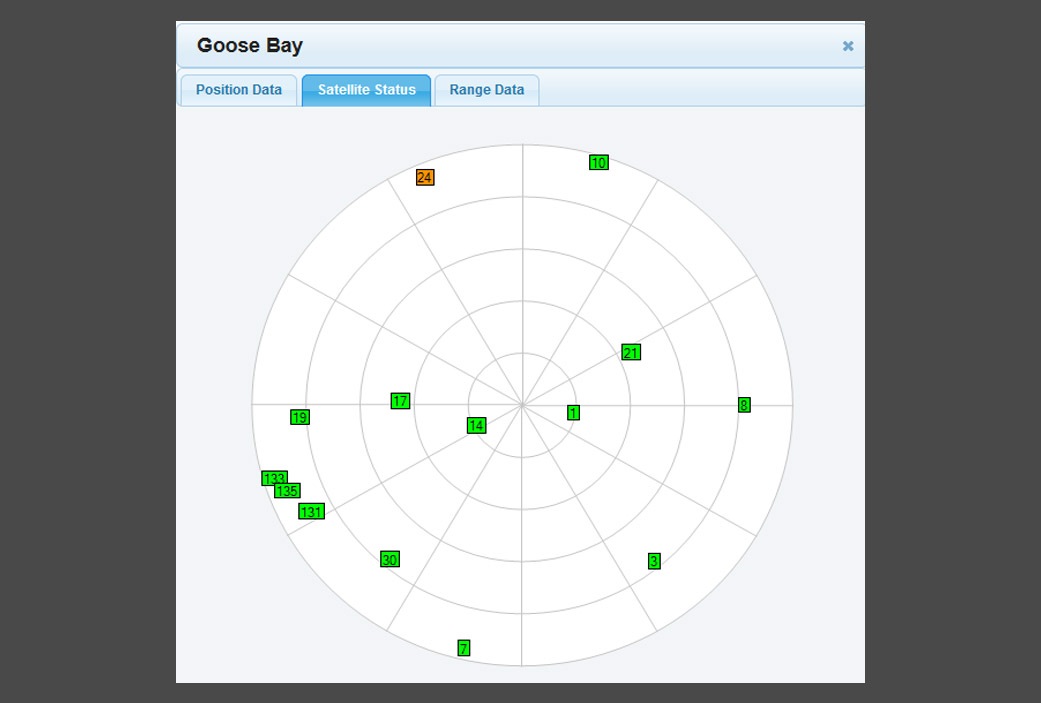What We Do
Satellite Navigation (SATNAV)
SST provides specialized engineering and technical services for performance monitoring, verification and validation, and modeling and simulation of satellite-based positioning, navigation, and timing (PNT) systems.
Get In Touch

Areas of Expertise
Performance Monitoring
SST ensures the reliability of PNT systems through the development and maintenance of performance monitoring and analysis software. SST monitors and evaluates daily the Signal-in-Space and system performance of Global Positioning System (GPS), Wide Area Augmentation System (WAAS), and other Global Navigation Satellite System (GNSS), such as Advanced Receiver Autonomous Integrity Monitoring (ARAIM) and Galileo, to keep aviation safe.
Some of the services SST performs includes:
- Monitoring the performance of GPS, WAAS, and other GNSS using metrics based on accuracy, availability, coverage, and range accuracy, among others, to ensure the safety of the satellite navigation network as part of the National Airspace System (NAS).
- Analyzing WAAS effectiveness at augmenting GPS based on performance parameters.
- Monitoring the performance of GPS Standard Positioning Service using real-time and post-event software tools.
GPS Modernization
SST develops simulation software to model and predict the impact of satellite outages on Required Navigation Performance (RNP), Receiver Autonomous Integrity Monitoring (RAIM), and Dilution of Precision (DOP) worldwide. This software also processes new dual-frequency signals and evaluates dual-frequency GNSS performance. SST also models and evaluates the performance of Galileo and ARAIM.GPS Vulnerabilities Studies
GPS vulnerabilities to interference, spoofing, and jamming can have a major effect on Aerospace and Defense (A&D). SST supports a joint FAA-DoD GPS resiliency testing effort to understand how vulnerabilities can impact A&D, and to develop mitigation and resiliency measures to improve the safety and security of civilian GPS applications.
Testing objectives include:
- Testing civil GPS receivers in-flight to understand how avionics respond to exploited GPS vulnerabilities.
- Coordination with pilots to understand their reactions to GPS interference events to better focus future testing efforts using real-world scenarios.
- Development of data processing and analysis software to process avionics data collected during testing events.
- Collaboration with industry, government, and military agencies to develop testing tools.
- Development of data-presentation software to plot data collected from test flights.


